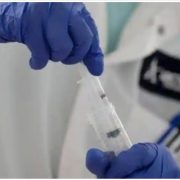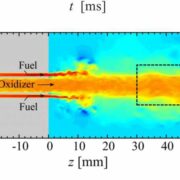Researchers speculate that your genes choose how your body responds to coronavirus,covid-19,nature of genes

Could hereditary contrasts clarify the distinctions we find in symptoms and seriousness of Covid-19?
At the point when a few people become tainted with the coronavirus, they just create gentle or imperceptible instances of Covid-19. Others endure extreme manifestations, battling to inhale on a ventilator for quite a long time, on the off chance that they get by any stretch of the imagination. In spite of a coordinated worldwide logical exertion, specialists despite everything come up short on an away from of why this is and how nature of genes effect everything specially nature of genes.
Could hereditary contrasts clarify the distinctions we find in indications and seriousness of Covid-19? by understanding nature of genes
To test this, we utilized PC models to investigate known hereditary variety inside the human resistant framework. The aftereffects of our demonstrating recommend that there are in reality contrasts in individuals’ DNA that could impact their capacity to react to a SARS-CoV-2 contamination.
At the point when an infection taints human cells, the body responds by turning on what are basically hostile to infection alert frameworks. These cautions distinguish viral trespassers and advise the resistant framework to send cytotoxic T cells – a sort of white platelet – to devastate the contaminated cells and ideally moderate the disease.
Yet, not all alert frameworks are made equivalent. Individuals have various forms of similar qualities – called alleles – and a portion of these alleles are more touchy to certain infections or microbes than others.
To test whether various alleles of this caution framework could clarify a portion of the range in insusceptible reactions to SARS-CoV-2, we previously recovered a rundown of the considerable number of proteins that make up the coronavirus from an online database. We at that point took that rundown and utilized existing PC calculations to foresee how well various adaptations of the counter popular caution framework identified these coronavirus proteins.
Why it makes a difference?
The piece of the alert framework that we tried is known as the human leukocyte antigen framework or HLA. Every individual has numerous alleles of the qualities that make up their HLA type. Every allele codes for an alternate HLA protein. These proteins are the sensors of the caution framework and discover interlopers by official to different peptides – chains of amino acids that make up portions of the coronavirus – that are unfamiliar to the body.
When a HLA protein ties to an infection or bit of an infection, it move the gatecrasher to the cell surface. This “denotes” the cell as tainted and from that point the safe framework will execute the cell. When all is said in done, the more peptides of an infection that an individual’s HLAs can identify, the more grounded the invulnerable reaction. Consider it like an increasingly delicate sensor of the caution framework.
The consequences of our demonstrating anticipate that some HLA types tie to an enormous number of the SARS-CoV-2 peptides while others tie to not many. In other words, a few sensors might be better customized to SARS-CoV-2 than others. Assuming valid, the particular HLA alleles an individual has would almost certainly be a factor in how compelling their resistant reaction is to Covid-19.
Since our investigation just utilized a PC model to make these forecasts, we chose to test the outcomes utilizing clinical data from the 2002-2004 SARS episode.
We discovered similitudes in how successful alleles were at recognizing SARS and SARS-CoV-2. In the event that a HLA allele had all the earmarks of being terrible at perceiving SARS-CoV-2, it was additionally awful at perceiving SARS. Our investigation anticipated that one allele, called B46:01, is especially terrible concerning both SARS-CoV-2 and SARS-CoV. Sufficiently sure, past examinations indicated that individuals with this allele would in general have progressively extreme SARS contaminations and higher viral burdens than individuals with different forms of the HLA quality.
What next?
In view of our investigation and nature of genes, we think variety in HLA qualities is a piece of the clarification for the gigantic contrasts in contamination seriousness in numerous Covid-19 patients. These distinctions in the HLA qualities are most likely by all account not the only hereditary factor that influences seriousness of Covid-19, however they might be a critical bit of the riddle. It is critical to additionally concentrate how HLA types can clinically influence Covid-19 seriousness and to test these expectations utilizing genuine cases. Seeing how variety in HLA types may influence the clinical course of Covid-19 could help distinguish people at higher hazard from the illness lies in nature of genes.
As far as we could possibly know, this is the primary examination to assess the connection between viral proteins over a wide scope of HLA alleles. As of now, we know almost no about the connection between numerous different infections and HLA type. In principle, we could rehash this examination to all the more likely comprehend the hereditary dangers of numerous infections that as of now or might taint people.

























